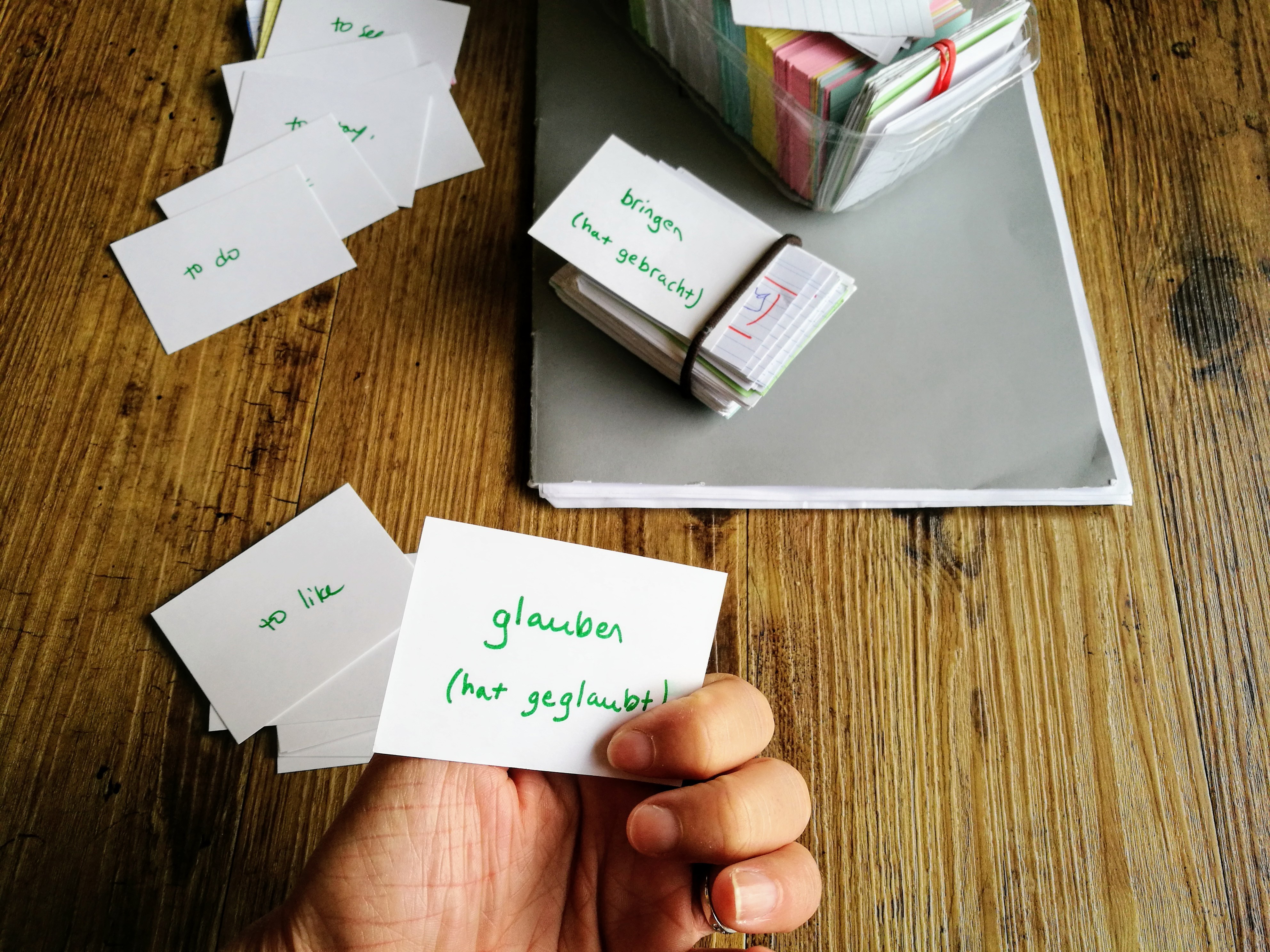Mastering new knowledge or preparing for exams can sometimes feel like an uphill struggle. Luckily, memorisation can help simplify this journey, helping you understand and retain knowledge.
Whether you're revising for an important test, learning a new language, or just trying to remember the groceries, effective memorisation techniques can transform your approach to learning and studying. Let's explore some tried and tested methods to enhance your memory, making studying more productive and enjoyable.
Jump to:
What is Memorisation?
To memorise is to store information in your brain for retrieval when needed. It's a process that involves encoding, storage, and recall. But what's the difference between memorisation and memorising? Simply put, they're two sides of the same coin; both refer to the act of committing information to memory, though "memorisation" often describes the overall process or techniques used, and "memorising" might refer to the act itself.
Memorisation isn't just about rote learning; it's about making connections and understanding the material on a deeper level. It’s a skill, and like any skill, it can be improved with practice and the right techniques.
5 Memorisation Techniques for Study Success
1. Chunking - The Memory Technique of Champions
Chunking is breaking down large pieces of information into smaller, manageable chunks. This technique leverages the brain's natural inclination towards pattern recognition. For instance, remembering a phone number is easier when it's split into segments rather than a long string of digits. Apply chunking to your studies by grouping related information or breaking down complex concepts into simpler parts.
2. Mnemonic Devices - Your Memory's Best Friend
Mnemonics are tools for memorisation that help you remember information through associations, often using humour or imagery. From acronyms to rhymes, mnemonics turn dry material into memorable snippets. A classic example is "Richard Of York Gave Battle In Vain" to remember the colours of the rainbow (Red, Orange, Yellow, Green, Blue, Indigo, Violet).
3. The Spaced Repetition System (SRS) - How to Memorise Fast
Spaced repetition leverages increasing intervals of time between reviews of what you've learned to enhance memory retention. It's based on the principle that we remember information more effectively if we recall it over spaced intervals. Flashcard apps or small pieces of paper can be excellent tools for this method, making it a favourite among language learners for its efficacy in vocabulary retention.

4. Visualisation and the Memory Palace Technique
A memory palace is a mnemonic device that involves visualising a place you know well and associating pieces of information with specific locations within it. This method taps into your spatial memory, allowing you to "walk" through the palace in your mind and retrieve the information associated with each location. It's a powerful tool for memorisation that can be particularly useful for speeches or presentations.
5. Active Recall - Test Yourself to Success
Active recall involves testing yourself on the material you wish to memorise rather than passively reviewing it. Creating practice questions or using flashcards forces you to retrieve the information from memory, strengthening your ability to recall it later. It's an effective studying technique for memorisation that promotes deeper learning.
Further Study Methods to Boost Your Learning
The 7 3 2 1 Study Method?
The 7 3 2 1 method is a structured study technique that involves reviewing material over progressively increasing intervals. Start by reviewing your notes after 7 days, then after 3 weeks, 2 months, and finally 1 year. This method incorporates the principles of spaced repetition and long-term retention.
The 3 Rs of Memorisation: Read, Recall, Review
This simple yet powerful approach involves reading the material, recalling it without looking, and then reviewing it to correct any mistakes. This cycle reinforces your memory and understanding of the topic.
The 20 20 20 Rule for Efficient Study Breaks
To avoid cognitive overload and keep your brain fresh, take a 20-second break to look at something 20 feet away every 20 minutes. This rule, while originally designed for eye health, can also help maintain focus and efficiency during study sessions.

Frequently Asked Questions About Memorisation
How Can I Make My Brain Memorise Faster?
Improving your memorisation speed involves a mix of techniques and lifestyle choices. Adequate sleep, regular exercise, and a healthy diet play crucial roles in cognitive function and memory. Combine these with memorisation techniques, and you'll find your ability to memorise and retain information improving significantly.
What is the Difference Between Memorisation and Memorising?
The difference between these terms is subtle and often revolves around context. Memorisation typically refers to the techniques or the process of committing information to memory. In contrast, memorising is the act of doing so. Memorisation is the broader concept encompassing various strategies and understandings of memory, while memorising is the application of these strategies.
Is Memorisation an Indicator of IQ?
Memorisation and IQ are distinct concepts, though they can intersect. Having a strong memory can contribute to higher performance on certain aspects of IQ tests, especially those involving recall and the application of knowledge. However, IQ encompasses a broader range of cognitive abilities, including problem-solving, logical reasoning, and understanding complex concepts. Memorisation is a skill that can be developed regardless of one’s IQ level, emphasising practice and technique over innate cognitive ability.
Recommended for you!
Best SellersEnhance Your Memorisation Skills with Centre of Excellence
Discover how to learn more effectively with our Mentalism Diploma Course, crafted to boost your study sessions for easier knowledge acquisition.
Why Centre of Excellence?
- Inclusivity: We believe that the door to education should be open to everyone. Our courses are priced to ensure that no one is left behind, highlighting our commitment to accessible learning for all.
- Learn on Your Terms: Our courses are designed with your life in mind. They offer the flexibility to learn at your own pace, seamlessly fitting into your daily schedule, no matter how busy you might be.
- Dedicated Support: Enrolment comes with the added benefit of personalised tutor support and access to a vibrant community of learners. You’re never alone on your educational journey; our support network is here to guide you every step of the way.
Special Offer
For a limited period, our Mentalism Diploma Course is available at an exclusive price of just £29, saving you over £100!













